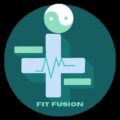Hypertension is also known as high blood pressure. It can be observed when the pressure in blood vessels is too high (140/90 mmHg or higher). It is common but can be serious if not treated.
mmHg
Millimeters of Mercury, a unit used to measure the pressure of blood in our vessels.
Causes:
- High-salt diet
- Oldage
- Genetics
- Obesity
- Alcohol/Tobacco
- Physically weak
It is written as two numbers
Systolic
Represents the pressure in blood vessels when the heart contracts or beats
Diastolic
Represents the pressure in the vessels when the heart rests between beats.
Symptoms:
Risk Factors
- Excessive salt consumption
- Diet high in saturated fat
- Diet high in trans fat
- Low intake of fruits and vegetables
- Physical inactivity
- Tobacco and alcohol
- Air pollution
Treatment
Lifestyle changes can help lower high blood pressure. These include:
- eating a healthy, low-salt diet
- losing weight
- being physically active
- quitting tobacco.
If you have high blood pressure, your doctor may recommend one or more medicines. Your recommended blood pressure goal may depend on what other health conditions you have.
Blood pressure goal is less than 130/80 if you have:
- cardiovascular disease (heart disease or stroke)
- diabetes (high blood sugar)
- chronic kidney disease
- high risk for cardiovascular disease.
For most people, the goal is to have a blood pressure less than 140/90.
Complications of uncontrolled hypertension
Among other complications, hypertension can cause serious damage to the heart. Excessive pressure can harden arteries, decreasing the flow of blood and oxygen to the heart. This elevated pressure and reduced blood flow can cause:
- chest pain, also called angina;
- heart attack, which occurs when the blood supply to the heart is blocked and heart muscle cells die from lack of oxygen. The longer the blood flow is blocked, the greater the damage to the heart;
- heart failure, which occurs when the heart cannot pump enough blood and oxygen to other vital body organs; and
- irregular heart beat which can lead to a sudden death.
Hypertension can also burst or block arteries that supply blood and oxygen to the brain, causing a stroke.
In addition, hypertension can cause kidney damage, leading to kidney failure.
Reducing hypertension
Prevents
Reduce the risks of hypertension by
- reducing and managing stress
- regularly checking blood pressure
- treating high blood pressure
- managing other medical conditions
- reducing exposure to polluted air
